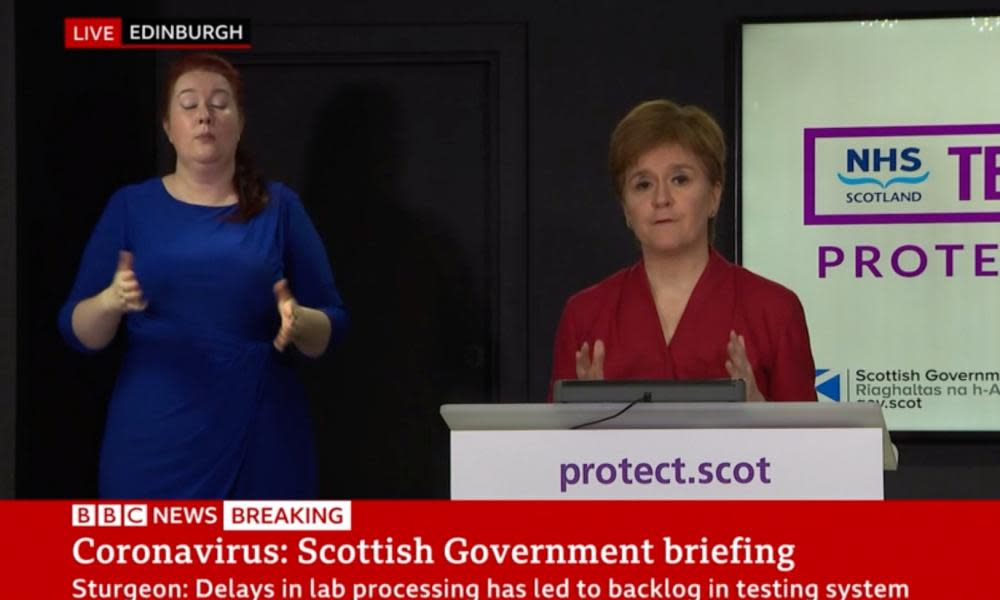BBC to continue live TV broadcasts of Nicola Sturgeon's briefings

BBC Scotland has confirmed that it will continue to screen Nicola Sturgeon’s coronavirus briefings live on TV in the “coming weeks”, after its decision to scale back coverage was met with widespread criticism.
The BBC Scotland director, Donalda MacKinnon, insisted there had never been any intention to stop coverage but added that “other voices and perspectives” would feature alongside the first minister’s weekday briefings.
In an email to staff, she also acknowledged that colleagues had struggled to explain the proposed changes: “I know that colleagues across the BBC in Scotland will have seen press and social media coverage in recent days … and some of you have felt unable to explain it fully when asked.”
Following the original announcement last week, John Swinney, the deputy first minister, and Ian Blackford, the Scottish National party’s Westminster leader, said they were surprised and disappointed the BBC would no longer screen every briefing in full on its terrestrial channels.
Sturgeon herself argued it was “not up to me as a politician” to direct the BBC on what it should or should not televise but said she believed her “ability to communicate directly with the public has never been more important”. She backed up complaints that the live screenings were needed, particularly with cases rising and winter approaching, and given elderly or vulnerable viewers did not use digital devices.
A petition to reinstate the full coverage was signed by more than 54,000 people.
However, opposition parties have claimed Sturgeon has used the regular briefings as a “party political broadcast”. Sturgeon’s personal ratings have risen exponentially during the pandemic and the SNP’s support is as high as 55%.
MacKinnon said: “We’ve said now that we’ll look at the briefings in the round – meaning we’ll broadcast them live on TV when we are in a period of the pandemic when there is significant public information being shared, such as new measures being introduced and implemented, rising rates of cases, a three-weekly review update or other public information.”
She added that the BBC would “incorporate other voices and perspectives alongside the briefings … involving politicians from across the political spectrum”.
MacKinnon told staff she hoped they appreciated “the challenge we faced in our desire to be fair while still giving the public all the vital health information they tell us they want during these trying times”.

 Yahoo News
Yahoo News 
